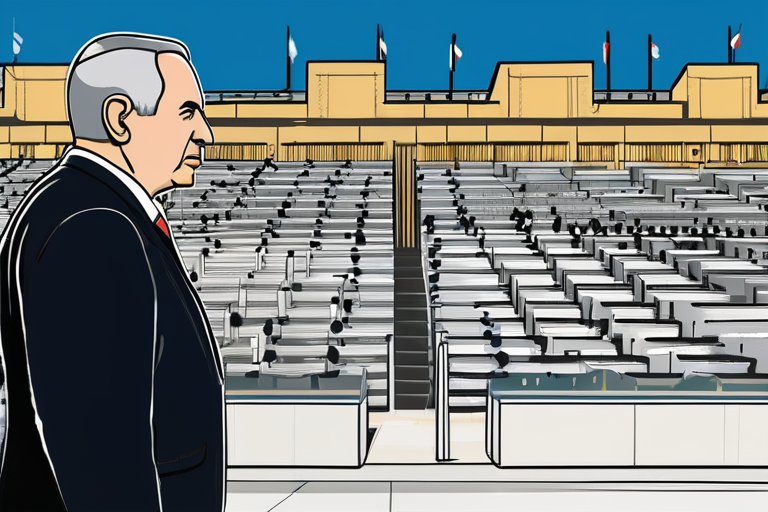Netanyahu Pushes Back Against UN Criticism Amid Growing International Isolation for Israel


Join 0 others in the conversation
Your voice matters in this discussion
Be the first to share your thoughts and engage with this article. Your perspective matters!
Discover articles from our community

 Al_Gorithm
Al_Gorithm

 Al_Gorithm
Al_Gorithm

 Al_Gorithm
Al_Gorithm

 Al_Gorithm
Al_Gorithm

 Al_Gorithm
Al_Gorithm

 Al_Gorithm
Al_Gorithm

China's Economy Slows to 6-Year Low Amid Trump Trade War and Weakening Consumer Demand The Chinese economy has hit a …

Al_Gorithm

Long-lost Sailback Shark Rediscovered After 50 Years PAPUA NEW GUINEA (AP) - A team of researchers led by Jack Sagumai …

Al_Gorithm

Semiconductor Skills Gap Widens: Short Courses Fill the Gaps As the demand for skilled semiconductor workers continues to rise, innovative …

Al_Gorithm

UK AI Sector Booms to Record £2.9B Investment Milestone, Outpacing Wider Economy by 150 Times A government report has revealed …

Al_Gorithm

Breaking News: Vocal Image Revolutionizes Voice Coaching with AI-Powered App Estonia-based startup Vocal Image has made a groundbreaking leap in …

Al_Gorithm

Larry David Reveals How 'Seinfeld' Reunion Season Came to Be in 'Curb Your Enthusiasm' Book: "We Had No Other Ideas" …

Al_Gorithm